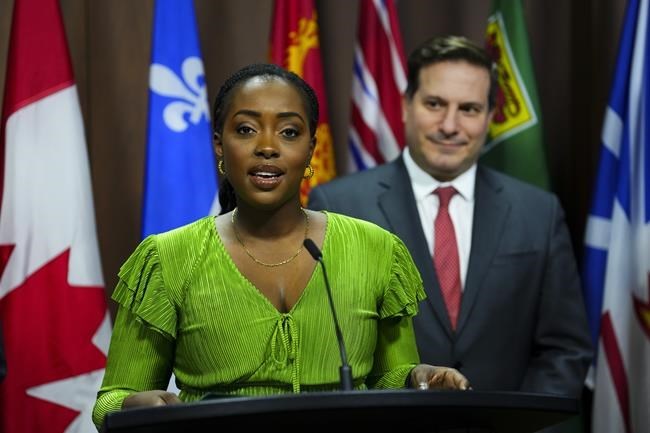OTTAWA — Members of Parliament have voted unanimously in favour of urging the government to address the needs of people with invisible disabilities in its national housing strategy.
Liberal MP Arielle Kayabaga introduced the motion, which calls on the government to include an expert on disabilities in its National Housing Council.
It also asks the government to formally recognize the barriers people with disabilities face when it comes to finding a home.
The 10-year national housing strategy, which is the Liberal government's plan to address the severe shortage of affordable housing across the country, has a $72-billion price tag.
Its lofty goals include lifting more than half a million families out of housing need and cutting chronic homelessness in half — though a recent report from the auditor general pointed out that the government has not collected data to show how many people are homeless in Canada and questioned how it would track that goal.
The first two phases of the rapid housing initiative are expected to build at least 10,000 units, according to the federal government. In November last year, Housing Minister Ahmed Hussen pledged an additional $1.5 billion to add another 4,500 units.
Kayabaga said that work will also include repairs to existing units, which is why she wanted to address what she saw as a gap in the strategy now.
"So that when the repair does happen, it includes disability inclusion — we're building units that are inclusive for all disabilities, not just visible," she said in an interview.
Invisible disabilities include mental health disorders, visual or hearing impairments and cognitive disabilities.
Kayabaga told the House of Commons in October that she worked with an Ontario non-profit organization to develop the motion, and learned there is a 40-year wait-list for housing for people with developmental disabilities in the province.
She also noted that the rate of poverty for adults of working age who have a disability is twice as high as it is for those who do not have disabilities.
"I think this motion comes at the right time," she said, adding that she sees the urgency of moving quickly.
"I talked with the minister of housing, we had very long conversations and he was very supportive, his whole team was very supportive."
Hussen's office did not respond to a request for comment by deadline Thursday.
This report by The Canadian Press was first published March 22, 2023.
The Canadian Press



